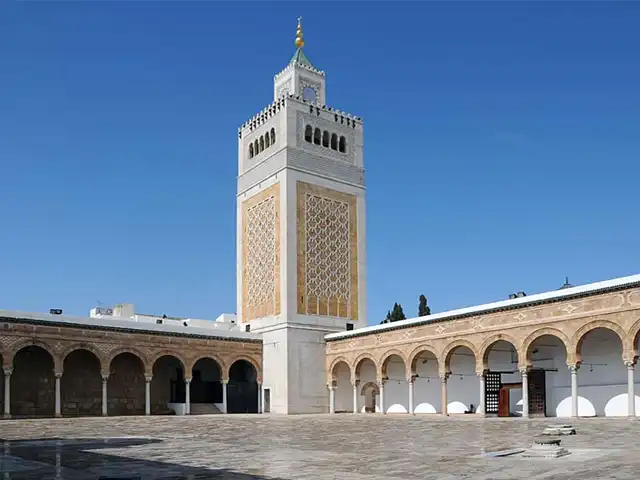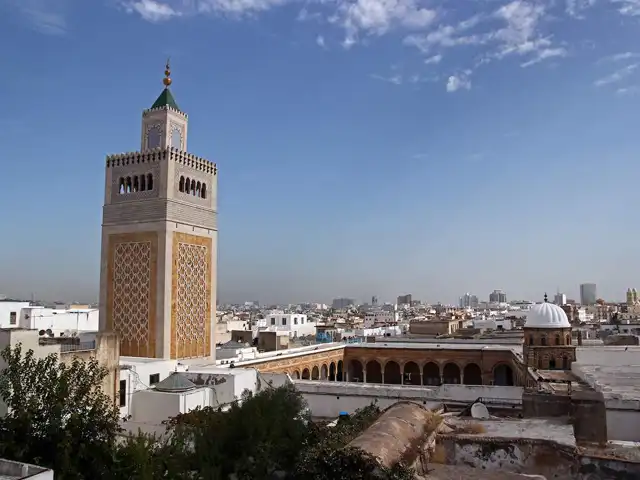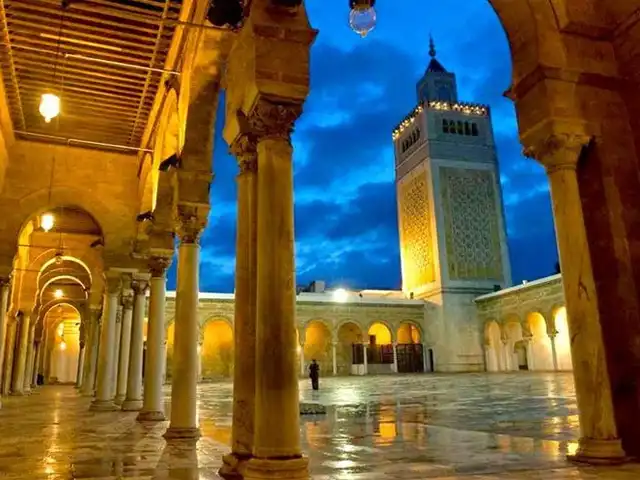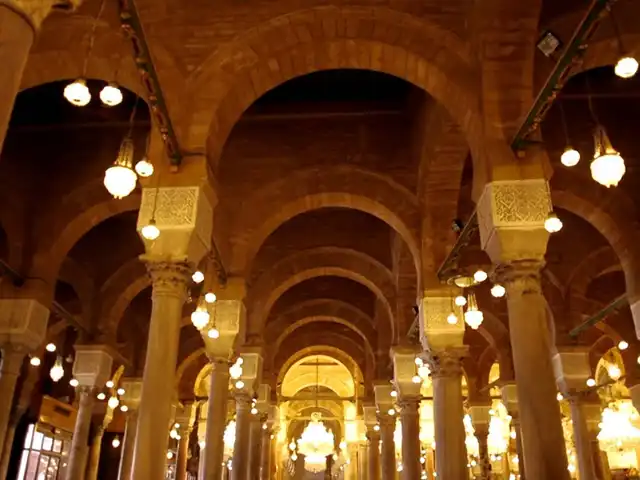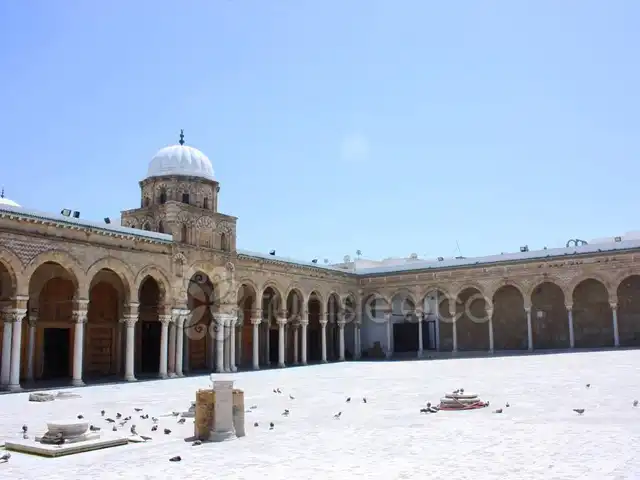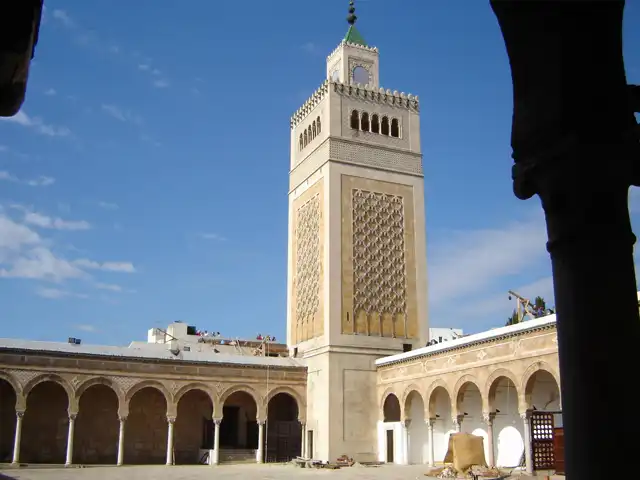The Zitouna Mosque
The Zitouna Mosque is the navel of the city of Tunis, the core around which the city as we know it today developed.
It is said that originally there was the retreat of a Christian monk and that near this retreat there was an olive tree, hence the name of the sanctuary: jemaâ Zitouna or Zitouna mosque (the Olivier) . The foundation of this one is very exactly dated: the year 732 of the Christian era; but the Zitouna was rebuilt in the middle of the 9th century.
Since then, the mosque has undergone several refurbishments, each dynasty keen to improve the aesthetics or the functioning of what some consider to be the first Islamic university, and the latest intervention dates back to the 19th century with the remodeling of the minaret, high of 44 meters.
As a result, the mosque reflects in its own way the evolution of the art of building in this country since the High Middle Ages, and even higher if we consider the ancient reused materials integrated into the building, such as a few sculpted marble lintels or the forest of columns and capitals that support the ceiling of the prayer hall or the courtyards of exterior galleries, mostly from Roman and Byzantine times.
In addition to the prayer hall, the courtyard and the courtyards that surround it and give access to the monument – which constitutes the central body of the building – the mosque was equipped with annexes and outbuildings, such as the midha, to ablutions, or the library, founded in 1450.
Situation:
Tunisia
See also:
– The old Medina of Tunis
Amenities:
– Bathroom
– Shop
– Cafeteria
The Mosque in pictures
